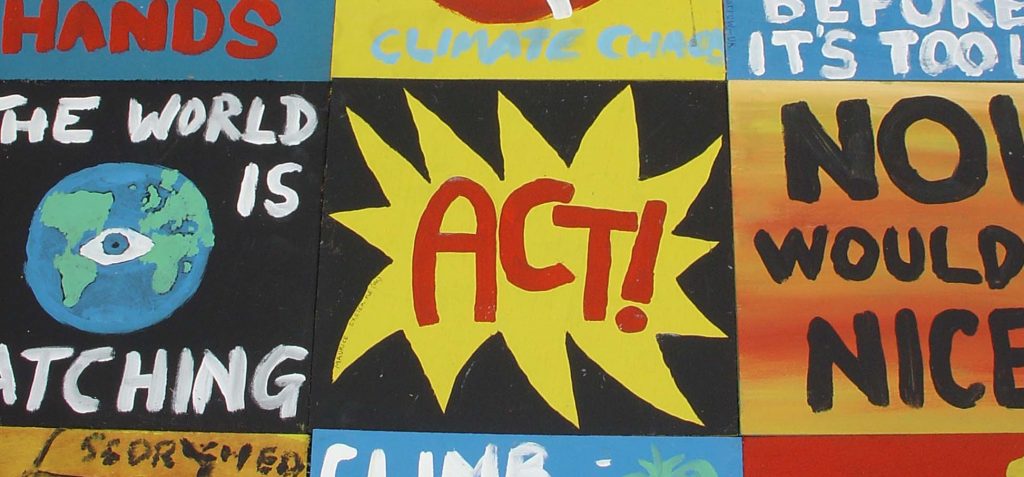Buchanan, Liberia, Brussels, Belgium, June 7, 2010 – The CountySocialDevelopment Fund (CSDF)[1] established by the government of Liberia and ArcelorMittal Liberia is failing to address the needs of communities impacted by the operations of ArcelorMittal in Liberia. This is the key conclusion of a new report [2] released by Sustainable Development Institute from Liberia, Friends of the Earth Europe and Global Action on ArcelorMittal (GAAM [3]), a coalition of civil society groups tracking ArcelorMittal operations worldwide.Contrary to the ArcelorMittal claims that its record in Liberia is an example of good corporate citizenship, the evidence presented in this report proves the opposite. According to the Mineral Development Agreement, ArcelorMittal is obliged to provide approximately US$73 million over the 25 year span of the agreement to support socio-economic development in Liberia via CSDF – US$3 million on an annual basis to three counties most affected by company operations.
The report raises critical questions about the company’s complicity in the misuse of the first tranche of approximately US$4.7 million County Social Development Fund in Liberia and warns that the Fund could be stolen and misused by politicians in charge to support their upcoming election campaigns in 2011.
Silas Siakor, from the Sustainable Development Institute in Liberia said: “Instead of the Fund contributing to the government’s efforts to meet the objectives of the Poverty Reduction Strategy, it is apparent that the Fund has been turned into a cash cow for corrupt local officials and their agents. ArcelorMittal and the government of Liberia must investigate the misuse of the funds and hold those responsible to account”.
As both the government of Liberia and ArcelorMittal share equal oversight responsibility for the Fund. The government cannot release any money from the Fund without ArcelorMittal’s approval.
Paul de Clerck, economic justice coordinator for Friends of the Earth International, speaking on behalf of Global Action on ArcelorMittal said “GAAM demands that the Liberian government and ArcelorMittal commission a forensic audit of the Fund’s operation, make public last year’s assessment of the fund, halt further release or appropriation of funds until the above audit and assessment have been completed and the recommendations implemented.”
Furthermore, the report states that by donating 100 pick-up trucks to the government of Liberia the company has also breached the OECD Guidelines for Multinational Enterprises. ArcelorMittal donated the vehicles in a response to direct request made by the President of Liberia that the company provides pick-up trucks for agricultural purposes. The trucks ended up in the hands of Liberia’s politicians.
Commenting on this still unresolved issue, Darek Urbaniak, extractives campaigner for Friends of the Earth Europe said: “Despite all of ArcelorMittal CSR rhetoric in Liberia the company gave in to the demands of public officials and donated vehicles that are not even used according to their initial purpose. This donation and the subsequent inaction to solve the issue prove that ArcelorMittal is still far from adhering to the CSR practices it claims to follow.”
Reflecting on the environmental impacts of the ArcelorMittal operations on the East Nimba Nature Reserve that is partially located within the company concession – GAAM requests the company to “Elaborate, publicise and implement a legally binding agreement with the government that will ensure integrity and maintenance of the status of the area for the entire period of the 25-year mining concession or return the area to the Liberian state. If ArcelorMittal is not willing to develop such agreement, it should return this area to the Liberian state.” Further recommendations to both government of Liberia and ArcelorMittal can be found in the report. ArcelorMittal’s is all set for initial iron ore production of 500,000 tonnes a year and gradually ramping up to as much as 25 million tonnes by 2011. If successful, it will boost more than half of ArcelorMittal’s current captive iron ore supply of 46 million tonnes a year.
***
Notes for editors:
The report focuses primarily on the County Social Development Fund, assesses ArcelorMittal level of compliance with the OECD guidelines and advances recommendations on how the management arrangements for the Fund could be improved.
[3] Global Action on ArcelorMittal is a network of community and environmental groups from around the world who are working to get ArcelorMittal to invest in pollution prevention and health and safety at its steel mills and coal and iron ore mines. It includes CEE Bankwatch Network and Friends of the Earth. For more details see www.globalaction-arcelormittal.org







